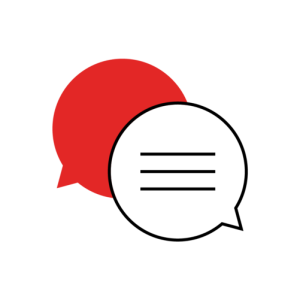Don’t have an account?
Select the donation type you’d like to make
Why we’re not a bank
Fun fact: your spleen is sometimes referred to as the ‘blood bank’ of the body, because it’s responsible for blood production and acts as a reservoir, storing blood for bodily emergencies.
For as long as we can remember, people have called us ‘the blood bank’, but there’s a good reason why we’re not called that. Before we delve into that, let’s get into a little history.
In 1929 the Victorian Red Cross established Australia’s first major blood transfusion service. Christened the ‘Blood Transfusion Service’, we called for volunteers willing to donate blood so that strangers in need could be healed.
At the end of our first year, the Blood Service had a few more than 100 donors on the books. 90 years later in 2019, more than 523,688 people donated blood in Australia. A service formed around a small group of voluntary donors in Melbourne has evolved into one of our most important public health resources.
The voluntary, non-remunerated process of donating blood in Australia is key to why we’re not a bank. The phrase‘blood bank’ refers to a system still used by some blood collection organisations around the world, where people donate blood to earn ‘credit’ for themselves, their friends and their family. Without those credits, they’re not be eligible to receive necessary blood transfusions. This is also how the United States’ blood supply began, and how we got the term blood banks; you must make a deposit before you can make withdrawal!
For example, India relies heavily on a family replacement system to meet their requirements. Patients who require blood must first supply the organisation with a relative or friend who is willing to donate blood. In Pilau if you’re pregnant, you need to recruit up to 8 people who can donate on your behalf should you need it. (Though far from being mandatory, at Lifeblood we also encourage the families of expectant parents to give blood through our She Gives Birth, You Give Blood program.)
In these countries, finding a donor to get you into the ‘blood bank’ can be time-consuming in emergency situations, or difficult for immigrants, or people without extensive local networks.
For this reason amongst others, the World Health Organization (WHO) recommends all countries develop national blood systems based on voluntary unpaid donations.
“Voluntary non-remunerated blood donors are the foundation of a safe, sustainable blood supply,” it says.
“Without a system based on voluntary unpaid blood donation, particularly regular voluntary donation, no country can provide sufficient blood for all patients who require transfusion.”
As we enter 2020, the WHO reports that 78 countries collect more than 90% of their blood supply from voluntary unpaid blood donations. This includes 56 countries with 100% (or more than 99%) of their blood supply from voluntary unpaid blood donors. In 58 countries, more than 50% of the blood supply is still dependent on family/replacement and paid blood donors.
So, here at Lifeblood, we’re not a blood bank. Our service is for anyone who needs it, and it’ll stay that way.
References
- Blood Safety and Availability. World Health Organisation. https://www.who.int/news-room/fact-sheets/detail/blood-safety-and-availa...
- 'Blood Matters, a social history of The Victorian Red Cross Blood Transfusion Service.’ Matthew Klugman. Australian Scholarly Publishing 2004. ISBN 1 740970667

